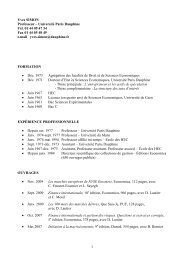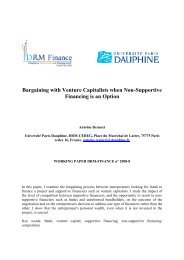Corporate governance and earnings management ... - CEREG
Corporate governance and earnings management ... - CEREG
Corporate governance and earnings management ... - CEREG
You also want an ePaper? Increase the reach of your titles
YUMPU automatically turns print PDFs into web optimized ePapers that Google loves.
was “not merely immaterial but also imaginary” (Hatfield, 1913, p. 115). He recommended<br />
rapid write-off against profit, in view of its uncertain nature.<br />
3.1.3. Germany: the static phase (1880 - 1985)<br />
Germany was the country with by far the longest initial phase: from 1880 to 1985. This<br />
pure static phase can be divided into two sub-phases.<br />
a) First sub-phase, 1880 - 1931: static approach in practice but not in the law<br />
Prior to 1931, the law made no reference to treatment of goodwill, leaving only doctrine<br />
<strong>and</strong> court rulings as our sources.<br />
Doctrine<br />
The history of the accounting treatment of goodwill in Germany cannot be fully understood<br />
without reference to the country’s accounting tradition. This tradition dates back to the 1850s<br />
<strong>and</strong> 1860s, the period that saw Germany’s first Commercial Code (1857). At the time the<br />
German lawmakers, under the influence of Napoleonic lawyers, adopted a static view of<br />
accounting: no item could be recognized as an asset unless it would have an individual market<br />
value (the separate saleability approach) in the event the company ceased to exist, i.e. went<br />
bankrupt, hence the term static (Richard, 1996, p. 31, 33). As a result of this doctrine most<br />
intangibles, particularly goodwill, that were not separable from the company <strong>and</strong> had no<br />
individual market value, had to be expensed immediately. This was to be the dominant<br />
practice for a great many years.<br />
In around 1900, the “old” static doctrine was still present <strong>and</strong> still outlawing recognition of<br />
any goodwill, not only acquired but also created goodwill (Greve, 1933, p. 20). The only<br />
major voices raised in favor of recognizing acquired goodwill came from precursors of the<br />
dynamic doctrine such as Simon <strong>and</strong> Fischer (Greve, 1933, p. 22).<br />
21



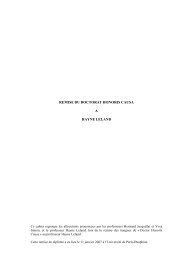
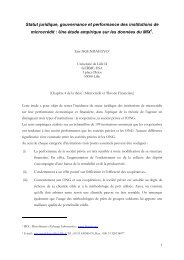
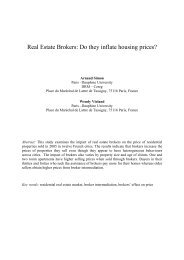
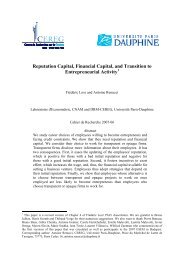
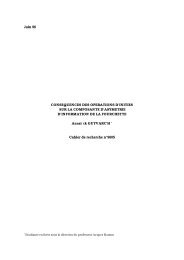
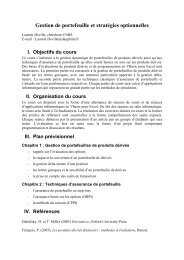
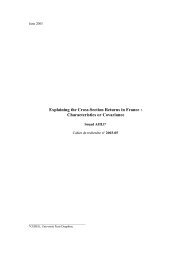
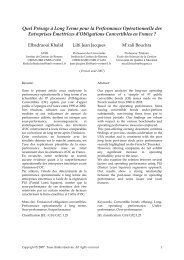

![& 6 ] ^ F ]^ - CEREG - Université Paris-Dauphine](https://img.yumpu.com/33326502/1/184x260/-6-f-cereg-universitac-paris-dauphine.jpg?quality=85)

